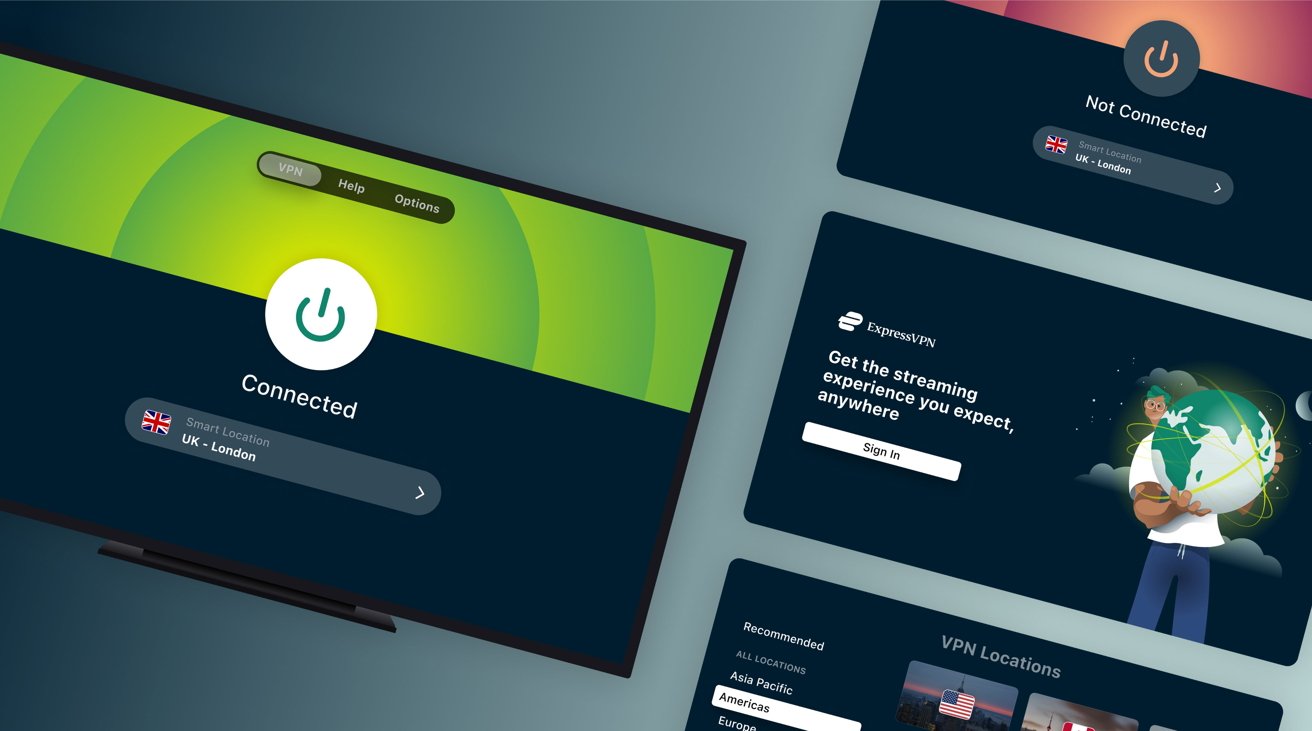ExpressVPN brings its VPN app to the Apple TV
ExpressVPN has released an app for tvOS 17, enabling customers to take advantage of the traffic-rerouting service on their Apple TV.

Before the introduction of tvOS 17, Apple TV users couldn't directly set up a VPN app on their set-top streaming devices, and instead had to rely on configuring their router to use that functionality. In a Monday release, ExpressVPN has introduced one that can be installed directly onto the Apple TV.
Apple added third-party VPN support to tvOS 17, with the change framed as one to benefit education and enterprise users wanting to access private networks. Though Apple didn't outright offer that it could be used by consumers, ExpressVPN decided to go that route anyway.
When used on an iPhone, iPad, or Mac, a VPN can allow users to divert their internet traffic through servers in other countries. As streaming services can often geo-lock content to be accessible within specific countries for licensing purposes, a VPN can allow users to see content viewable in other countries, expanding the content library.
By adding third-party VPN support, Apple allowed users to potentially connect to a VPN service with it configured at the Apple TV, without needing to change things at the router. Such a change therefore means only the Apple TV's web traffic is affected, leaving other devices accessing the internet as usual.
ExpressVPN's app appears in the Apple TV version of the App Store, with users able to sign in to the account using a QR code scan on their iPhone or entered in manually. Once set up, users can select from servers in 105 countries to connect through.
The service uses ExpressVPN's Lightway VPN protocol for reliability and consistent speeds, the company claims. Further improvements are said to be on the way in the coming months, with ExpressVPN also offering access to a beta program.
ExpressVPN wasn't the first to offer its own app on tvOS, with smaller outfits including PureVPN and IPVanish doing so earlier. However, its presence it may open other major VPN apps to offer something similar. According to The Verge, NordVPN now has ambitions to roll out its own app.
For today's top discounts across service providers, check out our roundup of the best VPN deals.
Read on AppleInsider



Comments